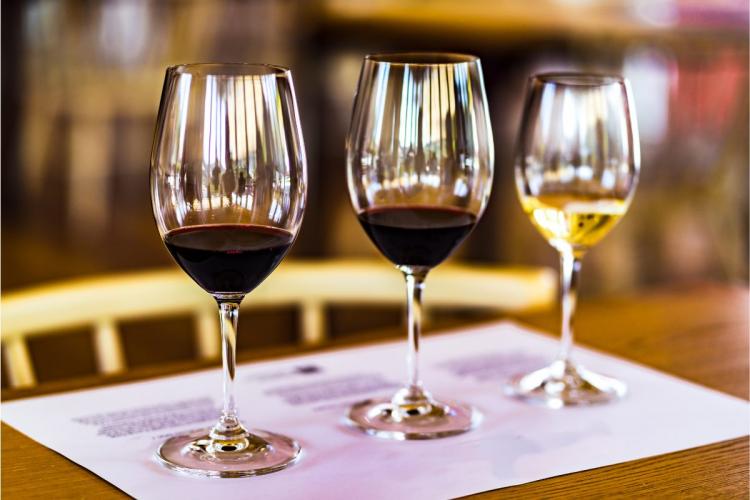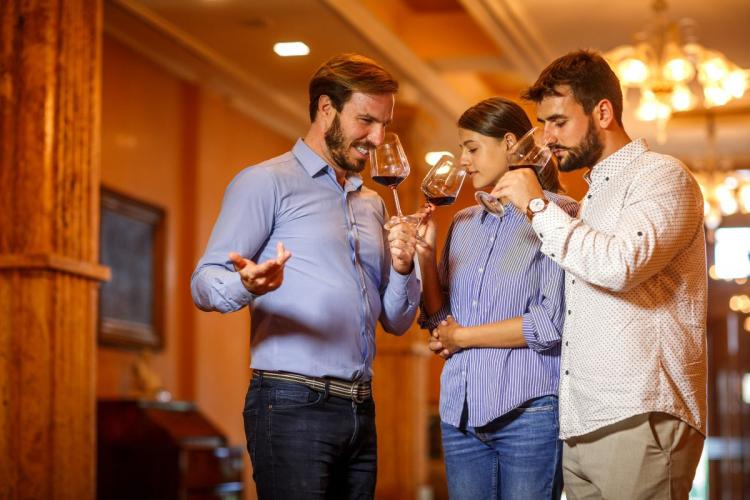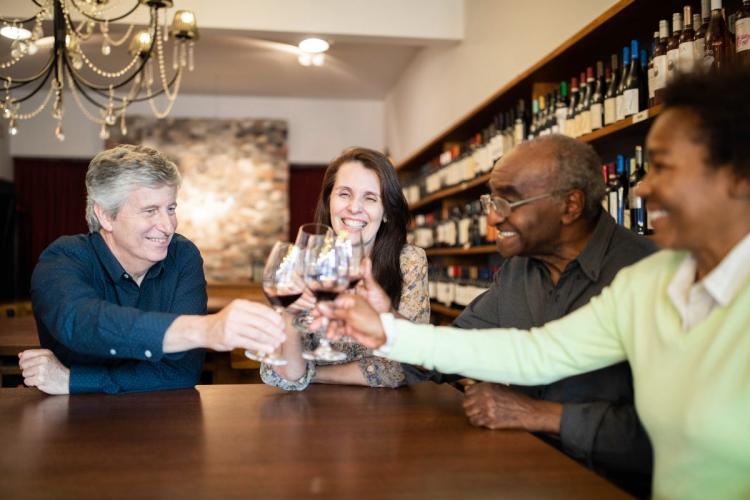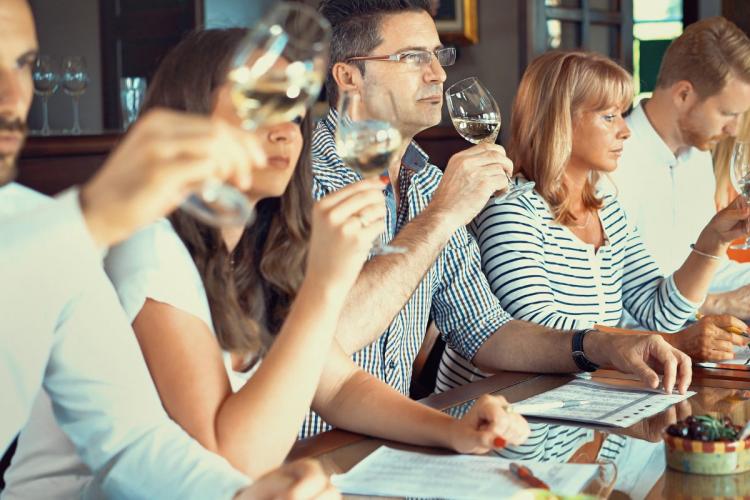Tips for a successful wine tasting experience
Embarking on a wine tasting journey is an enriching, educational, and enjoyable experience.
owever, it's important to ensure that your adventure is both memorable and successful. With proper planning, etiquette, and an open mind, you can make the most of your wine tasting experience and create lasting memories with friends and fellow wine enthusiasts. In this blog post, we will guide you through the steps to achieve a successful wine tasting experience, from researching wineries and transportation to mastering the art of wine tasting and navigating fees and purchases.
Short summary
- Plan ahead for a successful wine tasting experience by researching wineries, making reservations and considering transportation.
- Dress comfortably and stylishly while avoiding fragrances to optimize the tasting process.
- Practice responsible drinking habits such as pacing oneself, staying hydrated and spitting or dumping when necessary.
Planning your wine tasting adventure
Embarking on a wine tasting adventure requires thoughtful planning and preparation. By researching wineries, making reservations, and considering transportation options, you can ensure a seamless and enjoyable experience.
A well-planned wine tasting adventure not only enriches your knowledge of various wines, but also allows you to fully appreciate the craftsmanship behind each bottle. After all, a memorable and successful wine tasting experience is the ultimate goal for wine lovers.
Research wineries
An essential step in planning your wine tasting adventure is researching wineries. Perusing the most recent wine news and features on wine-searcher is an excellent approach for discovering wineries and wine tasting events.
Furthermore, conducting research on the specific winery you plan to visit, including their tasting rooms, can aid in refining your tasting approach. Honing your tasting strategy can assist you in maximizing your wine tasting experience and discovering new wines that will surely delight your palate.
Making reservations
Reservations are generally necessary for wine tastings and can be done via the internet or by telephone. Due to COVID-19, most wineries are presently receiving guests solely through reservations, making it even more important to book ahead. It is recommended to contact the winery beforehand to inquire about their walk-in policies for tastings and tours, particularly on weekends, to ensure that all parties are aware of the expectations.
Additionally, it is crucial not to attend a wine tasting on an empty stomach. Visit a nearby eatery or check if the winery has an on-site restaurant to enjoy a meal before proceeding to the tasting. This will not only enhance your tasting experience, but also help you avoid overindulging in wine.
Transportation considerations
Transportation plays a vital role in ensuring a successful wine tasting experience. Engaging a driver, utilizing a ride-sharing service, or reserving a wine tour with transportation included allows you to focus on the tasting experience without worrying about driving after sampling wines.
Furthermore, some vineyards have restaurants or eateries where sustenance may be acquired, while others provide food as part of their wine tasting experience. By considering transportation options, you can enjoy your wine tasting adventure with ease and peace of mind.
Dressing for wine tasting success
Dressing appropriately for a wine tasting is a manifestation of respect for the event and all those involved. By wearing comfortable, stylish, and sophisticated clothing, you will not only feel at ease, but also adhere to proper wine tasting etiquette.
In addition, avoiding fragrances is crucial for a successful wine tasting experience, as they can interfere with the aromas of the wine and consequently affect one's perception of the wine's taste. By dressing for success, you can fully immerse yourself in the wine tasting experience and make a lasting impression.
Comfortable cothing
When dressing for a wine tasting, women are advised to wear a dress or dress slacks with heels or nice flats, while men can opt for slacks and a jacket or sport coat (without a tie). Dressing in a sophisticated and elegant manner is essential, avoiding urban or flashy styles.
Moreover, dressing in layers is suggested as many winery experiences occur outdoors and tours often involve traversing through wine caves and refrigerated cellar areas. By choosing comfortable and stylish clothing, you can fully enjoy your wine tasting experience without any distractions.
Avoid fragrances
Avoiding fragrances when attending a wine tasting is crucial for fully appreciating the aromas and flavors of the wines. Strong perfumes, colognes, and heavily scented body lotions can interfere with your ability to detect the nuances of the wines you are tasting.
It is advisable to abstain from wearing fragrances, or if necessary, utilize a faint aroma to ensure that your senses are not overwhelmed by competing scents during the tasting experience.
Mastering the art of wine tasting
To fully appreciate the world of wine and elevate your wine tasting experience, it is essential to master the art of wine tasting. Proper glass handling, understanding the tasting process, and asking questions are all crucial components of a successful wine tasting event. By honing these skills, you will not only enhance your appreciation for the wines you taste, but also enrich your overall wine tasting experience.
Proper glass handling
Grasping the wine glass by the stem is of utmost importance during a wine tasting event. Holding the glass by the bowl may leave greasy fingerprints on the surface, which could influence the wine's temperature and ultimately affect the overall drinking experience with wine glasses.
Additionally, it is not necessary to rinse your glass between pours, unless you are transitioning between red wine and white wines or sweet and dry wines.
Swirling the wine in your glass is essential for releasing the wine's aromas, especially when enjoying sparkling wines. This should be done gently by placing your wine glass on a flat surface and moving it firmly while grasping the stem.
The tasting process
The tasting process involves several steps, including examining the wine visually, scenting the wine, tasting wine, and taking notes. Observing the wine's color, clarity, and viscosity is crucial for understanding the wine's characteristics. Taking a few deep inhalations and focusing on the fragrances will help you better appreciate the wine.
When tasting the wine, consume a small quantity and take note of the flavor, texture, and finish. Taking notes during the tasting process will help you remember your impressions and preferences, allowing you to better appreciate the wines you taste.
Asking questions and engaging with staff
Asking questions and engaging with staff during a wine tasting event is vital for enhancing your experience and gaining valuable insights. Don't be afraid to inquire about the winemaking process, the history of the winery, or the characteristics of the wines you are tasting. Posing questions demonstrates enthusiasm and allows you to learn from experts, enriching your wine tasting experience.
By actively engaging with staff members, you can deepen your understanding of the wines you taste and foster a greater appreciation for the art of wine tasting.
Navigating wine tasting fees and purchases
Understanding wine tasting fees, discounts, and complimentary tastings, as well as purchasing etiquette, is essential for a successful wine tasting experience. By being aware of these factors, you can confidently navigate the world of wine tasting and make informed decisions about which wines to taste and purchase.
This knowledge will not only enhance your wine tasting experience, especially when trying a pinot noir, but also ensure that you make the most of your time and resources.
Understanding tasting fees
Comprehending tasting fees is essential for planning your wine tasting adventure. Investigating the winery's website or contacting them in advance can help you grasp their distinct tasting fees. The tasting fees may differ depending on the winery and region.
It is also suggested to provide a gratuity of $10-$20 per couple for table side tastings or if the host has been particularly accommodating. By understanding tasting fees, you can budget accordingly and ensure a seamless wine tasting experience.
Discounts and complimentary tastings
Discounts and complimentary tastings can enhance your wine tasting experience by allowing you to sample wines at no cost or at a reduced rate. An annual club membership or Priority Wine Pass can provide complimentary, 2 for 1 or discounted tastings at over 200 top wineries.
Additionally, visiting wineries' websites or social media pages may provide further insight into available discounts and complimentary tastings. By taking advantage of these opportunities, you can enjoy a diverse range of wines without breaking the bank.
Purchasing etiquette
When it comes to purchasing wine, it is important to make reservations, moderate your spending, and not feel obligated to buy. Securing a reservation in advance guarantees that you will have a spot at the winery and that the desired wine will be available for purchase.
Moderating your spending helps prevent excessive spending and ensures a pleasurable experience. Finally, it is essential to abstain from feeling obligated to buy wine in order to make an informed decision regarding what you wish to purchase.
Enjoying wine tasting with company
Wine tasting is a social activity best enjoyed with friends and fellow wine enthusiasts. Sharing the experience with others not only enhances the enjoyment of tasting wines, including sweet wines, but also fosters learning and discovery.
By planning group visits and considering the needs of children and pets at wineries, you can create a memorable and inclusive wine tasting experience that will be cherished by all.
Group visits
Arranging group visits for wine tasting requires securing reservations in advance, especially since many wineries are not currently accommodating groups of six or more. Exploring private tours or custom wine tasting packages for larger groups can provide a tailored experience that caters to the interests and preferences of your group.
Additionally, it is prudent to confirm the transportation rules of a winery before visiting with a large group. By planning group visits thoughtfully, you can ensure a successful and enjoyable wine tasting experience for all attendees.
Kids and pets at wineries
When organizing a wine tasting excursion in the wine country with children and animals, it is essential to verify the wine producers' regulations in advance. Some wineries offer activities such as grape stomping, scavenger hunts, and more for children. Furthermore, certain wineries provide activities for pets, including dog-friendly trails and pet-friendly patios.
Checking winery regulations and considering the needs of children and pets while planning your wine tasting adventure will create an inclusive and enjoyable experience for everyone involved.
Responsible wine tasting
Practicing responsible wine tasting is essential for fully appreciating the wines you taste and ensuring a safe and enjoyable experience. Pacing yourself, staying hydrated, and spitting or dumping wine when necessary are all important factors in responsible wine tasting.
By adhering to these practices, you can not only enhance your wine tasting experience, but also ensure the safety and well-being of yourself and others.
Pacing and hydration
It is essential to pace and hydrate oneself while wine tasting to guarantee that one does not consume an excessive amount of alcohol and become inebriated. Drinking ample amounts of water and monitoring the quantity of wine you ingest will help you maintain a clear mind and fully appreciate the wines you taste.
It is also recommended to visit two to four wineries in a single day to avoid overindulging and ensure a more enjoyable experience.
Spitting and dumping
Spitting wine during a tasting event is generally deemed an acceptable practice, especially if multiple wineries are visited in the course of a single day. Practicing spitting at home and ensuring proper technique will help avoid any embarrassment or mishaps during the event.
If a spit bucket is not available at a winery, it is recommended to request one or bring a personal dump bucket. By spitting or dumping wine when necessary, you can maintain a clear head and fully enjoy your wine tasting experience.
Wine tasting in a few words
A successful wine tasting experience requires thoughtful planning, proper etiquette, and responsible practices. By researching wineries, making reservations, dressing appropriately, mastering the art of wine tasting, and navigating fees and purchases, you can fully immerse yourself in the world of wine and create lasting memories with friends and fellow enthusiasts. Remember to pace yourself, stay hydrated, and enjoy the journey, as each sip is an opportunity to discover new flavors, aromas, and stories behind the world's most exceptional wines.
Frequently Asked Questions
What do you at a wine tasting?
At a wine tasting, you can gain insight into the complexity of the wine by seeing, swirling, sniffing, and sipping it. This process allows you to appreciate its appearance, aroma, and flavor, as well as the components that make it unique.
What are the 5 S's of wine tasting?
By following the 5 S's of wine tasting (see, swirl, sniff, sip, and savor), you'll be able to get the most out of your glass of wine. These steps will guide you through a comprehensive and enjoyable tasting experience, whether it be Prairie Berry Winery wine or otherwise.
With the 5 S's, you'll gain an appreciation for the complexities of wine that you never knew existed.
What are the three types of wine tasting?
Wine tasting is an enjoyable activity that involves analyzing and appreciating the various aromas, flavors, and textures of different wines.
There are three main types of wine tasting: formal wine tasting, educational tasting, and casual or "fun" tasting. Each type of tasting has its own set of rules and guidelines to follow to ensure a successful experience.
What is winery etiquette?
Good winery etiquette includes holding the wine glass by the stem or base, taking time to smell and savor the wine, and opening the bottle quietly.
Following these simple tips can help ensure that your visit to the winery is a pleasant experience.




